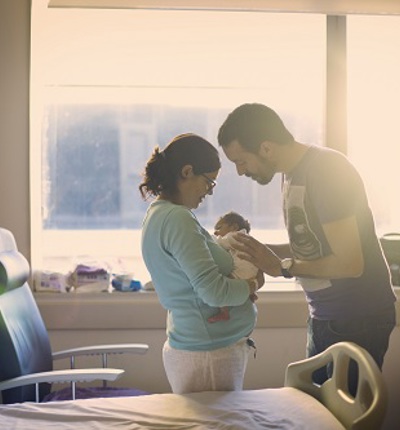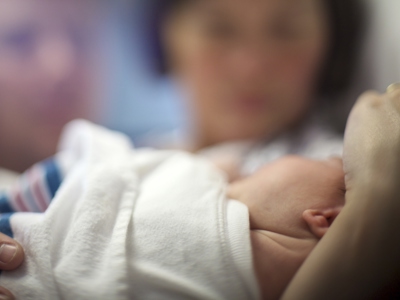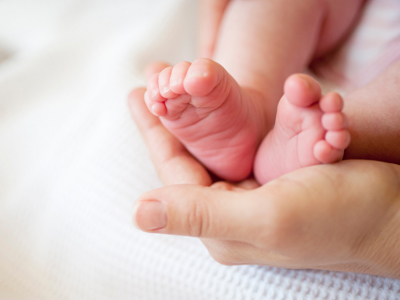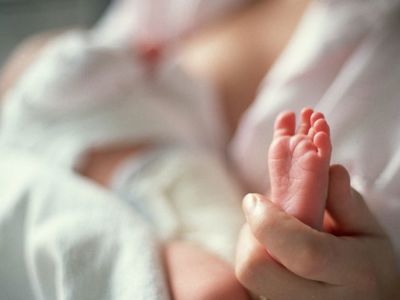
Cerebral Palsy Negligence Claims | Trusted Legal Support
Get help today with your cerebral palsy claim
If your child has cerebral palsy that was caused by medical negligence our sensitive and experienced team of cerebral palsy lawyers can help you investigate a possible claim for compensation.
Cerebral palsy is a neurological condition caused by brain damage, which affects an individual’s movement, balance, and posture.
- Inadequate treatment of maternal health conditions during pregnancy
- Failure to monitor fetal development during pregnancy
- Failing to act on distress of the baby during labour which results in the baby being deprived of oxygen during birth
- Mismanagement of forceps or ventouse during delivery of a baby.
Get help today
Get in touch and we'll call you back
See how we helped others

More than £21 million secured for child who suffered cerebral palsy birth injury
A settlement of over £21 million has been secured from a NHS Health Trust for a child who sustained a serious brain injury at birth at due to negligent treatment by medical professionals.

More than £18 million secured on behalf of child with cerebral palsy
A nine-year-old girl, who suffered permanent and severely debilitating brain damage as a result of negligent management of her mother’s labour, has received an eight-figure lump sum and annual payments in compensation to meet her needs for the rest of her life.
Causes of cerebral palsy
Brain damage is the cause of cerebral palsy, but there are many different things that may trigger that damage before, during and after birth.
Sometimes these causes occur due to negligent action or inaction from the medical professionals involved in the antenatal care, birth or postnatal care of the baby.
Cerebral palsy medical negligence cases aim to prove the negligence resulted in the development of cerebral palsy.
Such negligence could include:
- Failure to act upon maternal infections or medical conditions during the pregnancy
- Poor management of your labour and delivery
- Failure of the medical staff to appropriately monitor or act upon your baby’s heartbeat during labour
- Damage to the baby’s head or skull during delivery
- Failure to act upon signs of infection in the baby after birth
An instrumental delivery is when forceps or ventouse are used to assist with the delivery of the baby. This is typically when the baby is not progressing through the birth canal as they should. There may be concerns about its wellbeing, or the mother may be too exhausted to push.
Incorrect usage can cause skull fractures or severe brain damage leading to cerebral palsy.
Impacted blood flow to the baby’s brain can cause vascular insufficiency (commonly referred to as a stroke). Various factors can lead to a stroke in a baby during pregnancy, including genetic and pre-existing ones.
Group B Strep is a bacterium that occurs natually in about 25% of women at any one time. Is usually causes no harm to women but can be passed on to babies during labour and can cause sepsis and meningitis. If left undiagnosed and untreated this can lead to catastrophic brain damage.
If it’s not diagnosed and treated in new-borns due to medical professionals missing symptoms or not arranging proper treatment, it can result in cerebral palsy and a claim.
Read more about Group B Strep.
The value of compensation varies depending on the specifics of each case. However, as any compensation awarded needs to cover a lifetime of care for your child and other needs related to it, claims are generally valued between £1 million and £7 million.
Compensation typically covers the costs of care and support for the rest of your child’s life.
A portion may also be in light of the emotional distress cerebral palsy negligence has caused to you. It can be paid in a lump sum, periodical payments or a mixture of both.
You can use compensation to cover the costs of:
- Care
- Therapy (physiotherapy, hydrotherapy, occupational health, speech and language)
- Technology and aids and equipment
- Transport needs
- Accommodation/housing (for the child and family)
- Loss of earnings
- Special education needs
Making cerebral palsy claims
If your child has cerebral palsy and you believe it was down to medical negligence before, during or after birth, you may have a claim.
If you wish to consider bringing a claim, contact Leigh Day for a free consultation, including advice about a potential claim. Call us today on 020 7650 1200.
We are happy to visit you at home if this is easier or more comfortable – as we realise the challenges involved looking after a child with cerebral palsy.
An experienced cerebral palsy solicitor from our team will listen to your story, assess your realistic chances of making a successful claim and advise on your next actions.
A named partner will then be assigned your case alongside a strong support team, should we take on your claim. It can be useful to collect any supporting evidence that may assist your claim, such as medical reports, documents, statements and financial records.
Get help today
Get in touch and we'll call you back
Cerebral palsy claims: FAQs
There are three main types of cerebral palsy, and people with cerebral palsy commonly have two or more of them:
Spastic cerebral palsy – which includes children with spastic quadriplegia, spastic diplegia or spastic hemiplegia have increased muscle tone, which can cause:
•Delayed developmental milestones for moving.
•Abnormal movements.
•Movement inhibition.
•Stiff and spastic muscles.
•Difficulties controlling muscle movement.
•Difficulties moving from one position to another.
Dyskinetic cerebral palsy (dystonic, athetoid or choreoathetoid) – children tend to make involuntary movements because they find it difficult to control their muscles, which change from floppy to tense. It can cause:
•Dystonia, repetitive and twisting motions.
•Athetosis, writhing movements.
•Chorea, unpredictable movements.
•Poor posture.
•Painful movements.
•Difficulty swallowing or talking.
Ataxic cerebral palsy – causes poor balance, limited coordination, tremors, and shaky movements that are difficult to control.
People with cerebral palsy can be affected in different ways. In some cases, the condition is barely noticeable, and your child will grow up to live a largely independent life. However, in other cases, they will require help with every daily aspect of their life. Certain conditions do occur more frequently in children with cerebral palsy. These can include:
•Mobility problems
•Motor control and coordination difficulties
•Learning difficulties or cognitive impairment
•Difficulty with feeding, swallowing and speech
•Lack of bladder and bowel control
•Sleeping problems
•Sensory impairment (hearing and visual loss)
•Difficulty processing shapes and spatial relationships
•Epilepsy
•Emotional and behavioural problems
•Spinal problems
The general rule is that an adult with cerebral palsy has three years from the age of 18 to start a claim, unless assessments have ruled that they never had legal capacity.
In the case of children, the three-year period starts from when your child turns 18 and ends when they turn 21. If your child is over 21, it may still be possible to extend this time limit if assessments have identified that they do not have legal capacity. For example, if they are suffering from an intellectual impairment and cannot make decisions for themselves.



